Debunking Popular Genetic Myths
Can you separate genetic fact from fiction? Certified genetic counsellor Mallika Venkatramani busts five common genetic misconceptions.
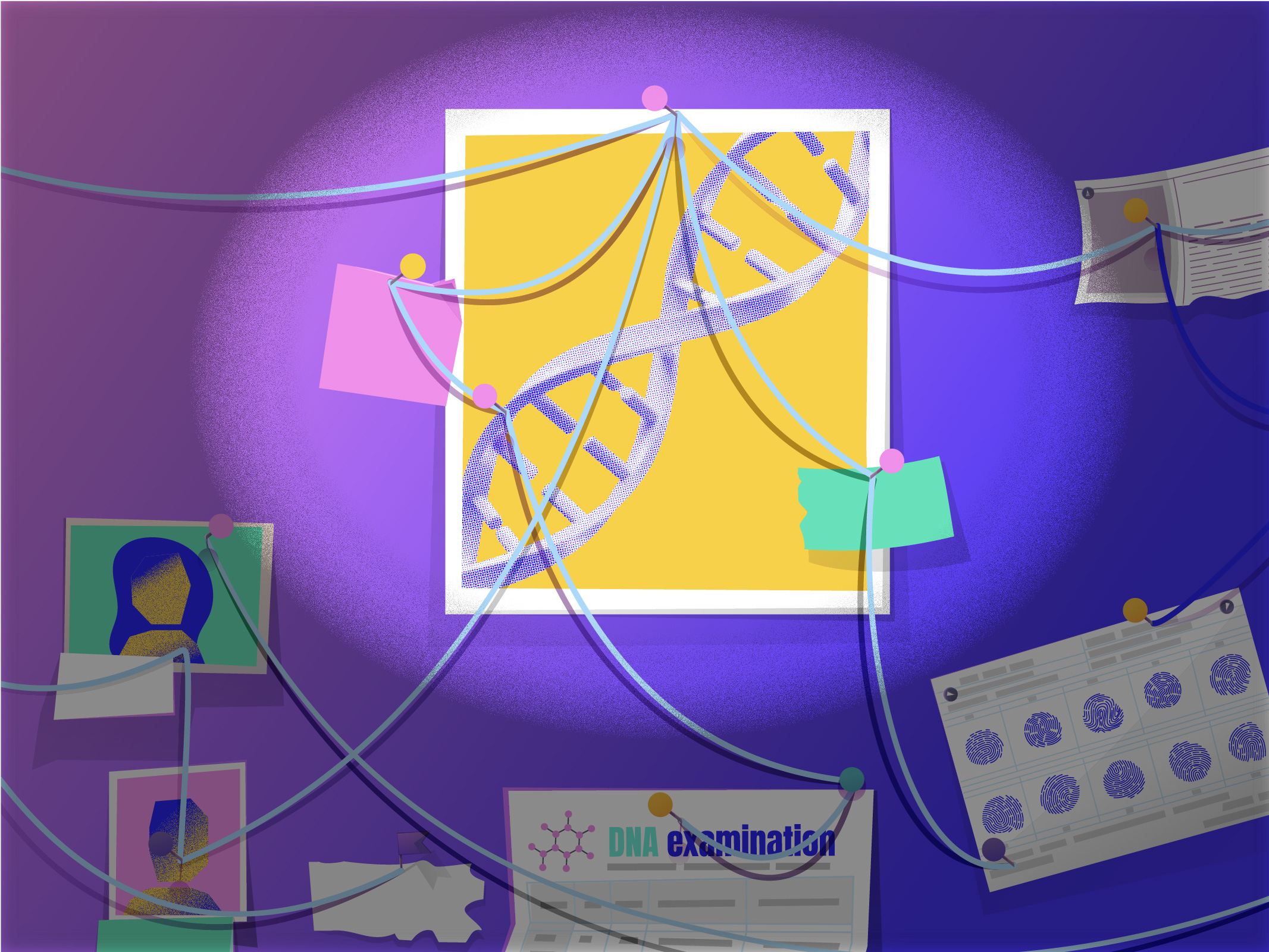
When I was volunteering at my neighbourhood community garden, my fellow gardener asked if I could create genetically engineered plants. I told her that I am a genetic counsellor, which means I interact with humans, not plants. Even if I were a plant geneticist, what they were asking for would require more than a handful of garden tools!
Genetic counsellors are healthcare professionals with expertise in human genetics. We interpret genetic risks based on individuals’ medical and family histories and educate them on often-complex information in an understandable manner. We also provide emotional support along the way.
Did I always know that I wanted to be a genetic counsellor? Not at all. But my fascination for genetics began when I learned to solve genetics-related questions while preparing for my PSLE and O-Levels. I also was lucky that my school brought us on field trips to Science Centre Singapore. From an early age, it was ingrained into me that science was cool and worth pursuing as a career. As a certified genetic counsellor now, this Void Deck article is my humble attempt to give back to the Science Centre and spread enthusiasm for biology and genetics.
As a professional who interacts with people daily, I have heard my fair share of genetics myths, some of which this article will hopefully debunk.
First, let’s start with the basics. Most cells in our body contain a nucleus (a.k.a the “brain” of the cell). The nucleus contains a chemical called deoxyribonucleic acid (DNA), which serves as our body’s instruction manual. DNA contains genes, which are like chapters in this instruction manual. Genes influence traits, like eye colour. Spelling errors in this instruction manual, referred to as mutations from this point, may influence the risk of a disease. DNA also contains regions called noncoding sequences that don’t directly influence traits.
Moving on, let’s examine some common myths and misconceptions related to genetics.
Myth #1: Genetic conditions are more common in Western populations.
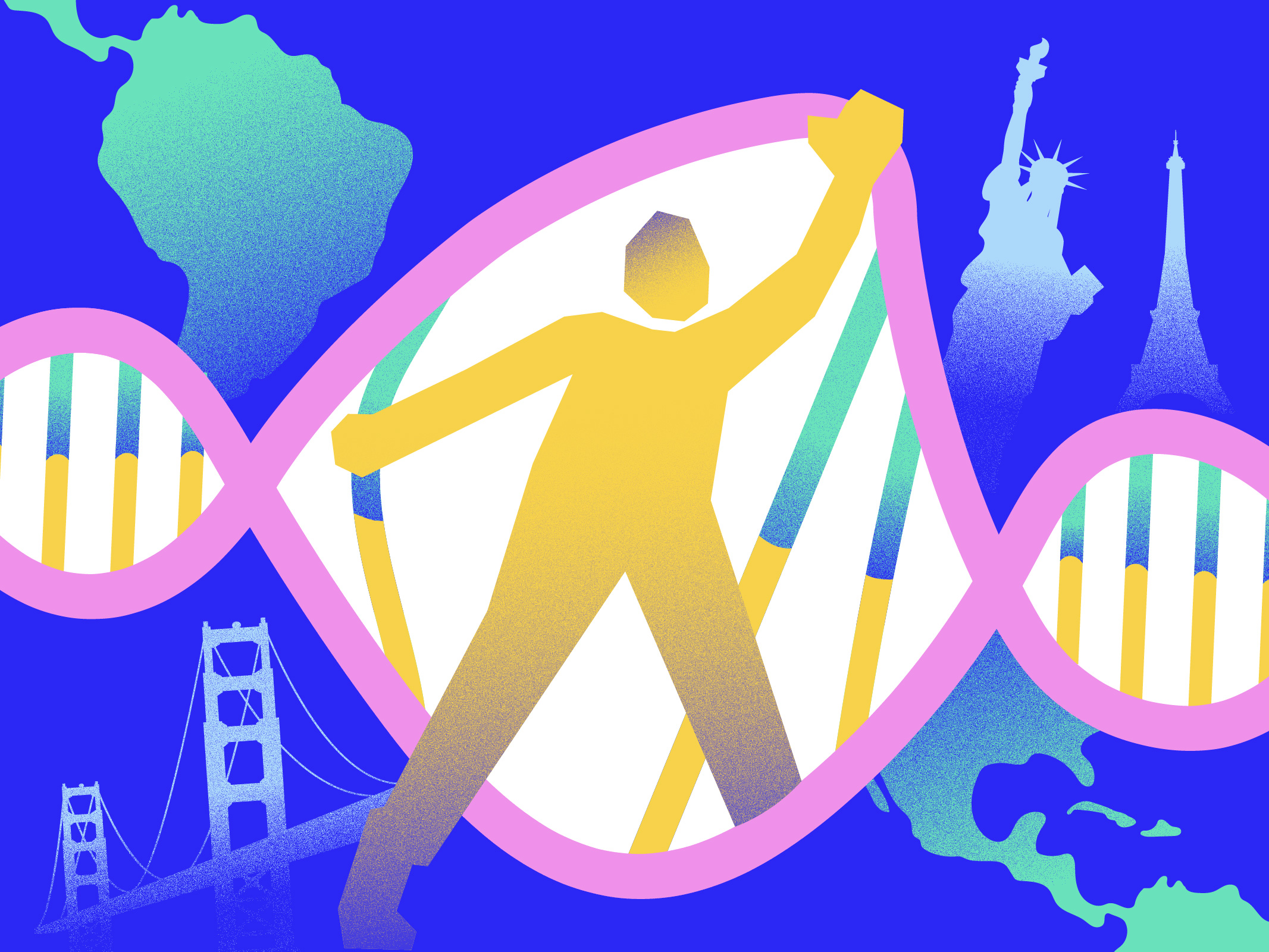
When I told my folks that I wanted to become a genetic counsellor, their impression was: “What is a genetic counsellor and who goes to one anyway?”
No doubt, people don’t go to a genetic counsellor as frequently as they visit a general practitioner. A recent Singapore-based study from a public health cluster found that of 10, 000 patients who would have been eligible for cancer-specific genetic counselling, only about 1700 were referred to the cancer genetics clinic.
Many people feel this way partly because genetic research has historically involved people of European ancestry. As a result, knowledge of how genetic conditions impact other ancestries has remained limited.
To further perpetuate this misconception, the Angelina Jolie effect happened in 2013.
In a 2020 Singapore-based study that explored the information individuals hoped to have while pursuing genetic testing, a participant mentioned that Angelina Jolie created more awareness about genetic testing than anyone else. The Hollywood actress has been vocal about her genetic testing journey, which helped her learn that she had a BRCA1 gene mutation.
Individuals with BRCA1 gene mutations have a higher lifetime risk of developing breast, ovarian, pancreatic, prostate and other cancers. Detection of the BRCA1 gene mutation gives the individual the chance to undergo early and/or more stringent screening as well as risk-reducing surgeries, such as a double mastectomy, even before cancer develops. And if cancer is indeed detected, medical intervention (e.g. surgery) can be performed in a timely manner, possibly leading to better patient survival and outcomes. Individuals with such gene mutations typically will have detailed discussions with their clinical team to develop a personalised medical management plan.
The Angelina Jolie effect seemingly led to genetic testing becoming a Western medical trend. However, that BRCA1 gene mutations – or any other genetic condition, for that matter – are a “Western disease” is far from the truth.
For example, in a 2003 study involving 49 Singaporean breast cancer patients, BRCA1 gene mutations were detected in 6 individuals. The authors discussed that specific BRCA1 gene mutations likely occurred in some individuals a long time ago (such “ancient” mutations are called founder mutations) and got transmitted through the generations.
As humans, regardless of our ancestry, all of us have genes. As a result, any of us could have a genetic mutation.
Myth #2: Genetic testing can accurately tell me what my ancestry is.
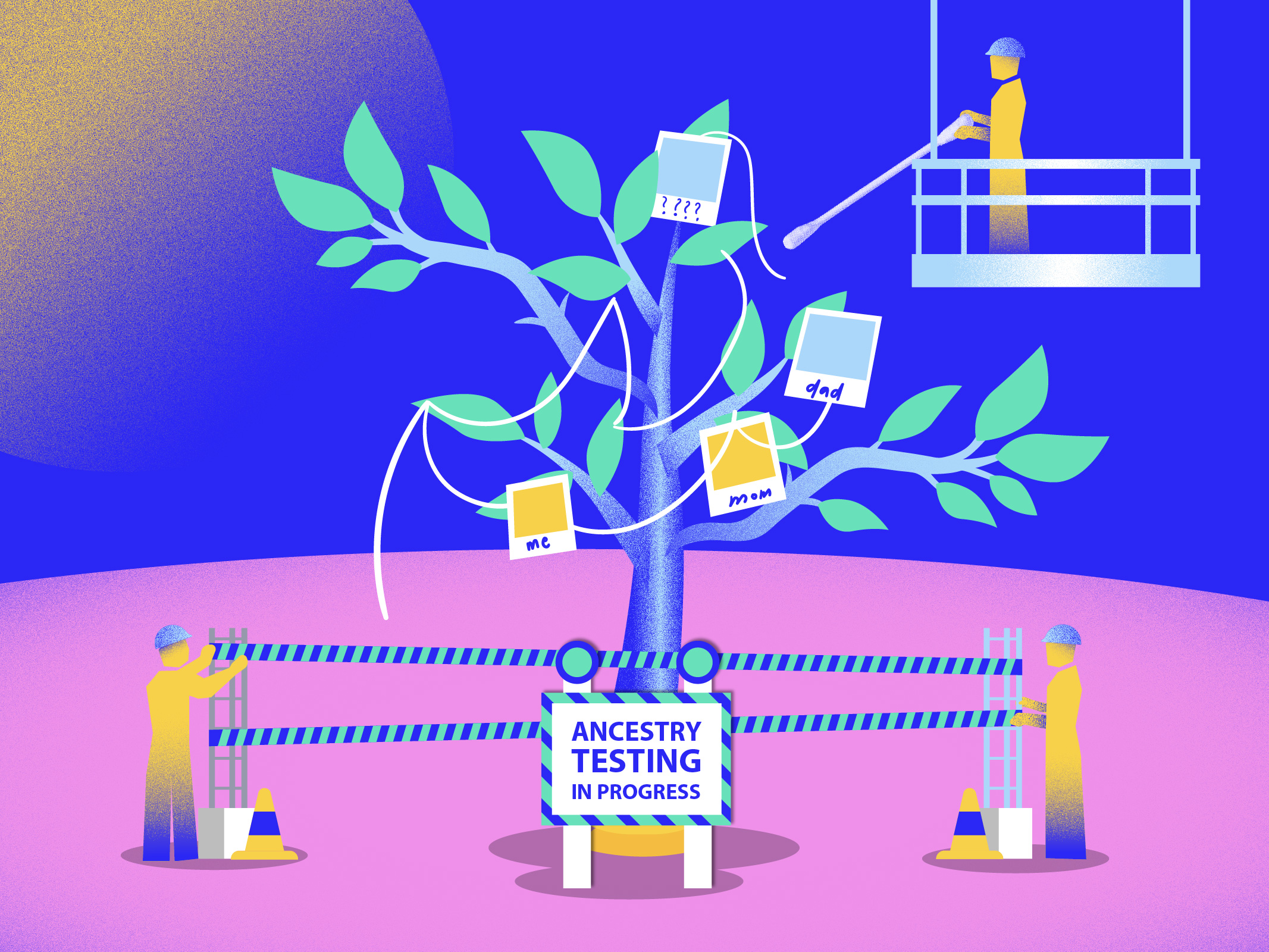
Millennials and Gen Z have probably seen YouTube videos of people claiming “I did my ancestry testing!” or “I can’t believe my ancestry testing results!” Have you been tempted to try ancestry testing?
To my earlier point on genetic research being mainly focused on European populations, we are not at the stage where we know a great deal about non-European ancestries. This means that people of non-European backgrounds, who make up majority of our island nation, are probably not going to get the most accurate or reproducible results. To complicate matters, in an ethnically diverse society like ours where many individuals identify as multi- or biracial, ancestry testing results could challenge people’s long-held understanding of their ethnic identities.
There is a lot to unpack on this subject, which is perhaps best reserved for a future article. For now, suffice it to say that you should consider taking your ancestry testing results with a grain of salt. In fact, our Ministry of Health has recommended exercising caution against direct-to-consumer tests (i.e. tests directly purchased by customers without involving a genetics professional), including ancestry testing.
Myth #3: “I look like my Mom, and so I will also develop the same disease as her.”
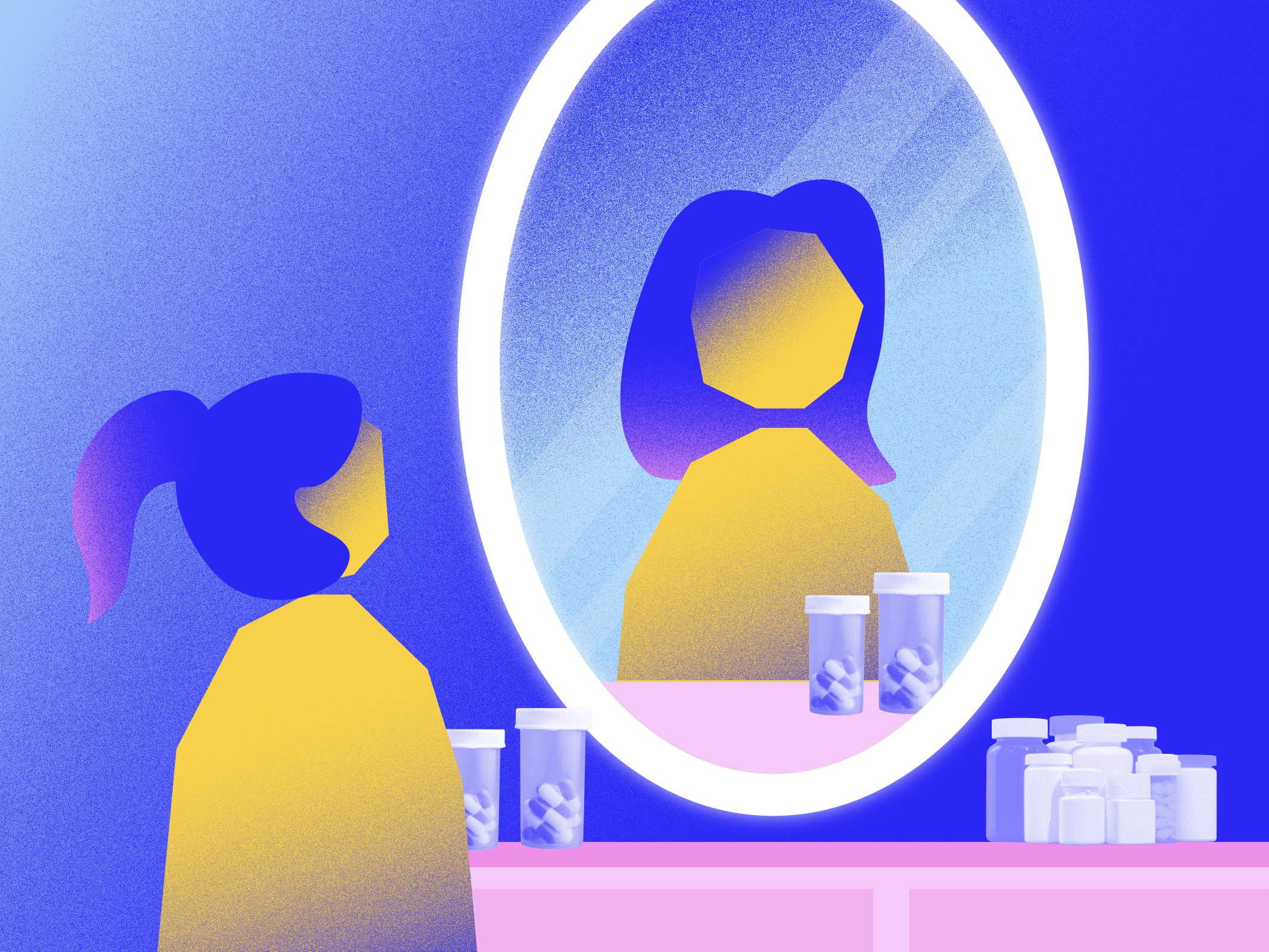
Most of us have probably heard a well-meaning aunty or uncle comment that we look more like our Mom or Dad at a family gathering. It’s most natural; in fact, the older I get, the more frequently I make those judgments myself. This is why people often assume that they will develop the same disease(s) as the parent they resemble more.
We inherit 50% of our genes from our mother and father each, which I refer to as the 50:50 rule. Many obvious features (e.g. skin colour or height) are controlled by multiple genes. By pure chance, you might look more like your mom or dad depending on the combination of genes you get from each parent.
In contrast, most genetic diseases are controlled by just one (or a few) specific gene(s). Going by the 50:50 rule, if a parent has a mutation in a disease-causing gene, there is a 50% chance that they will pass it on to each child independent of the genes that control physical features. In other words, even if you look more like your mother, if your father has a disease-causing gene mutation, there is a 50% chance that you inherited it from him (and vice versa!).
Myth #4: Female cancer genetic risks are only passed down to daughters.
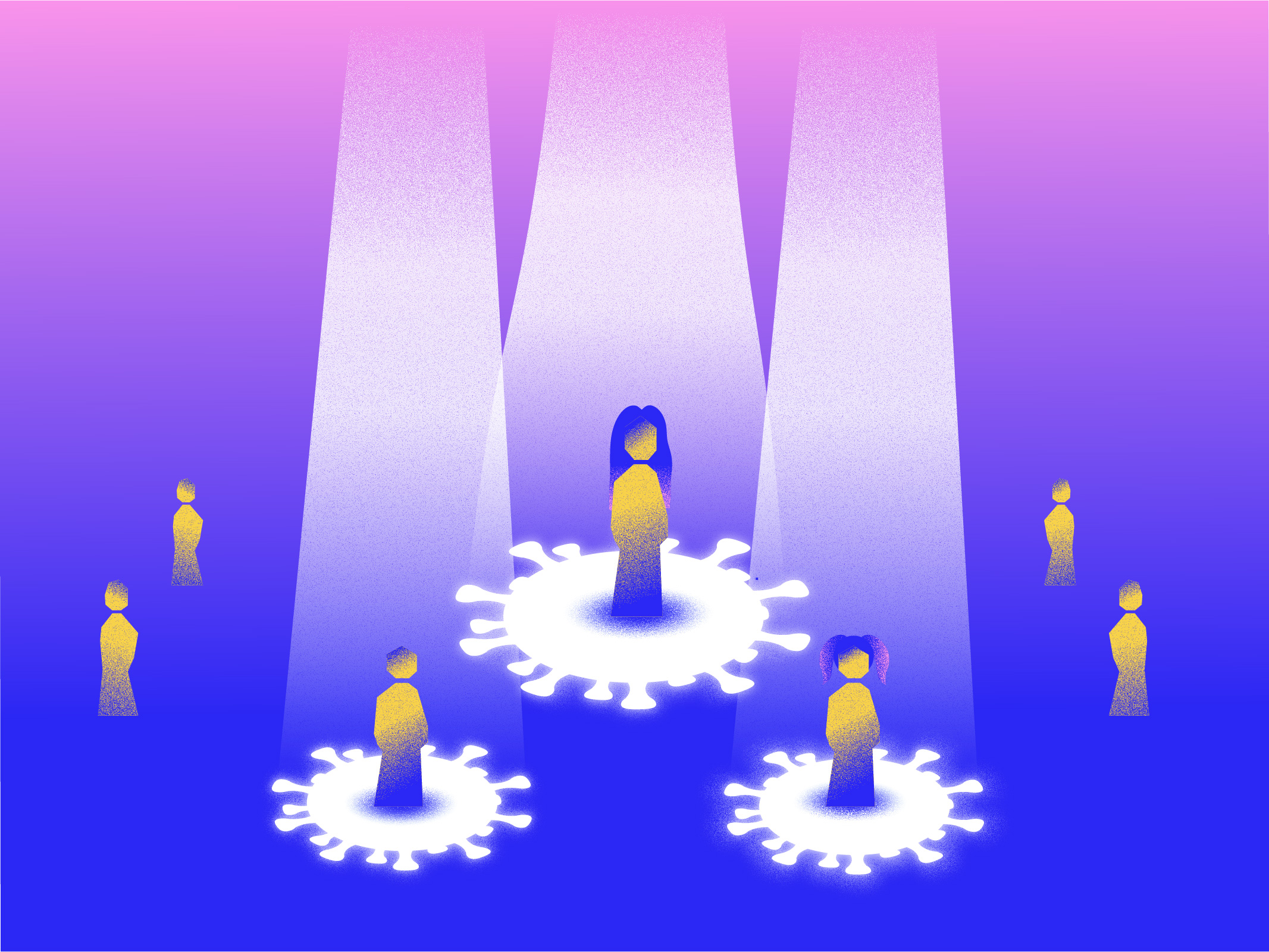
As a genetic counsellor working in oncology, I hear this often from concerned patients.
Let’s re-visit the case of BRCA1. Males and females naturally are born with this gene; it protects our cells from developing into cancer cells. Mutations in BRCA1 mean that this gene cannot do its usual cancer-protective job, which causes an increased risk for several cancers. 1 in 400 people worldwide have a BRCA1 gene mutation.
Since males and females are born with the BRCA1 gene, mutations can be present in either sex. Males and females are equally likely to pass down a BRCA1 gene mutation to their son or daughter. The cancers that develop due to this mutation vary by sex – for example, ovarian cancer would arise only in females and prostate cancer in males, but the mutation per se is passed down from parent to child regardless of sex.
This means that a female with breast cancer concerned about genetic risks should also be thinking of her sons, not just daughters.
Myth #5: Genetic mutations can skip a generation.
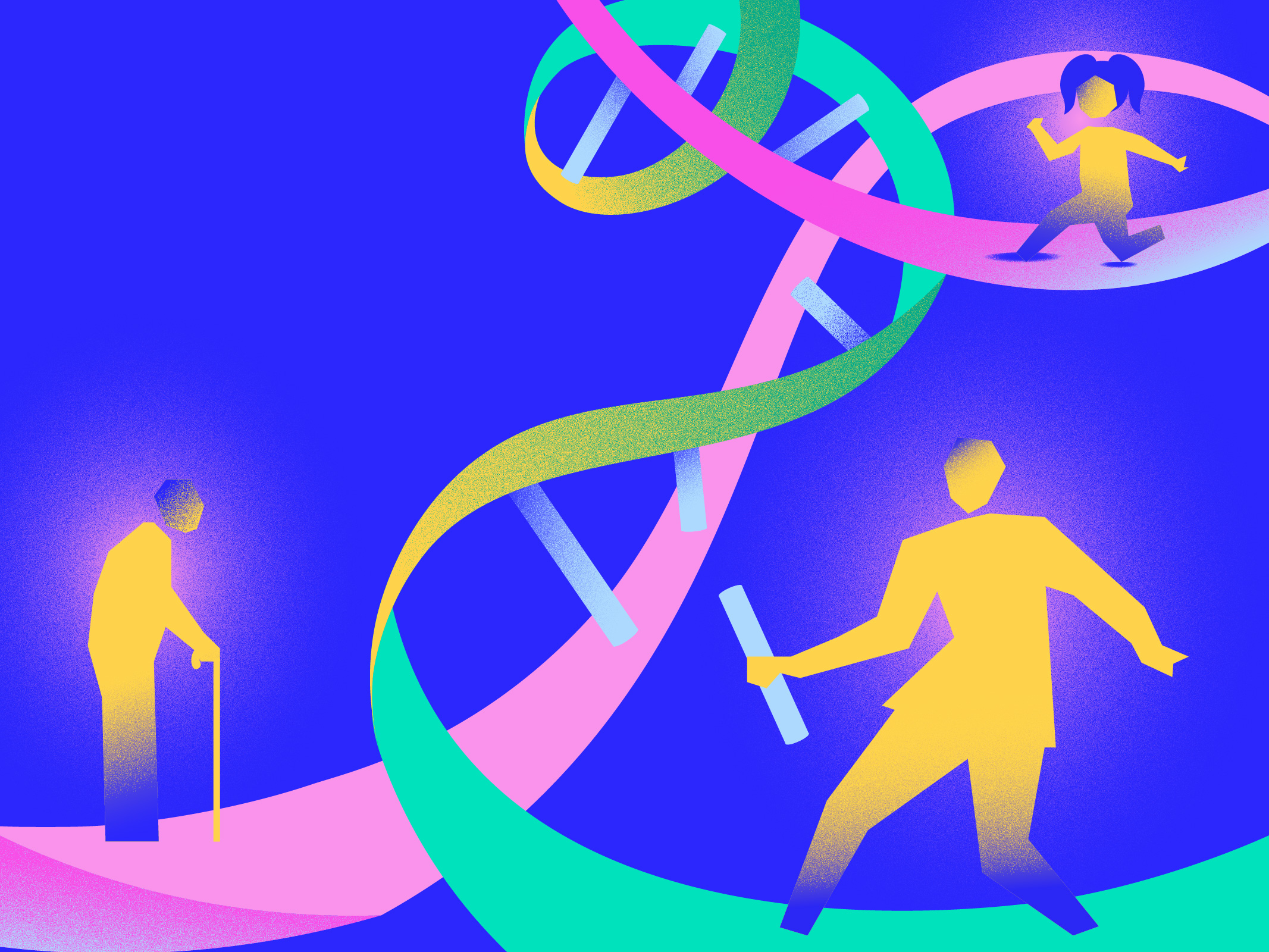
I can see how people arrive at this conclusion, because in some families, diseases appear to happen for the first time in someone, or in a distant relative.
As discussed in a Health365.sg article, it is a common belief that you might not need genetic testing because no one else the family has had cancer. Along those lines, people might observe that “cancer skips a generation” in their family, and therefore, conclude that they might not need genetic testing.
If you noticed, in this article, I always used the word “risk” when discussing the possibility of disease arising due to a genetic mutation. If a genetic mutation is present in a person, there is a 50:50 chance that it gets transmitted to the next generation. However, the presence of a mutation doesn’t automatically mean that people might develop a disease like cancer.
For example, a BRCA1 gene mutation leads to a greater than 60% – not 100% – lifetime chance of developing breast cancer. Due to various factors (such as environment, lifestyle, etc.), someone with a BRCA1 gene mutation might never develop cancer. However, this person still has a 50% chance of passing it down to each of their children. Consequently, one of their children who inherits the mutation might develop cancer. This causes diseases like cancer to appear as though they are skipping a generation.
If we look closely, though, the genetic mutations are still being transmitted through generations, but whether someone ultimately develops a disease is person-specific.
Of note, there are some genetic mutations that lead to a nearly 100% chance of developing diseases like Huntington’s Disease. In genetics, context is important. Always consult with a genetic counsellor, medical geneticist or other qualified genetics professional if in doubt!
Genetic testing has gained immense popularity in recent years, which has brought with it a barrage of myths and misconceptions. With precision medicine (treatments tailored to an individual's unique genomic, environmental, and lifestyle information) entering the spotlight, genetics is likely to play an increasingly important role in routine healthcare. It is for this exact reason that genetic literacy is important – to understand our genetic risks correctly, scientifically-sound knowledge is crucial. Fortunately, professionals, science communicators and organisations like the Science Centre have been hard at work developing resources that demystify this complex subject. As with any science, we must remember to do our research and consult with experts before arriving at conclusions.
Disclaimer: The information in this article is for general educational purposes and genetic literacy only. It should not replace professional medical advice, diagnosis, or treatment. If you have concerns about genetic conditions or are considering genetic testing, please consult a qualified genetic counsellor, medical geneticist, or your healthcare provider for personalised guidance.
Written by Mallika Venkatramani
Illustrated by Jansen Michelle
Author biography: Mallika Venkatramani, MS, LCGC is a Singapore-bred licensed and certified genetic counsellor currently based at Grady Health System, Atlanta, USA. Mallika specialises in seeing patients at-risk for hereditary cancer syndromes. She formerly worked at the National Cancer Centre Singapore where she was involved in clinical and research work. In her free time, she enjoys cooking, travelling and hiking.
Published 13 November 2025

